Science
Intent
At Greenfield Primary, it is our intent to provide a high-quality science education to build foundations to help children to understand the world around them; to understand how scientific discoveries have changed our lives and how scientific investigation can impact on the world’s future prosperity.
The children will be encouraged to understand how science can be used to explain things that are occurring; to predict how things will behave and to analyse the causes of this. By delivering a curriculum based around Biology, Chemistry and Physics, children will be taught the essential aspects of knowledge, methods, processes and uses of science. They will be encouraged through different types of enquiries to ask and answer scientific questions about the world around them and in addition to understand the uses and implications of science today and for the future.
Throughout lessons, children are given the opportunity to develop the initiative to make predictions; to devise & carry out investigations and to evaluate their thinking. This will extend their scientific vocabulary and utilise their mathematical skills of collecting, presenting and analysing data.
Implementation
Teachers create a positive and enthusiastic attitude towards science, helping all children to realise that they can achieve high standards in their learning. This is done through a whole school approach of teach, revisit and consolidate to make progress. To achieve this we will;
- Teach science on a weekly basis.
- Teach children through a two year rolling programme (within each phase) which revisits the areas of Chemistry, Biology and Physics several times throughout each cycle.
- Planning involves teachers creating engaging lessons, often involving high-quality resources to aid understanding of conceptual knowledge. Teachers will demonstrate how to use scientific equipment and how to apply their working scientifically skills to their tasks with an emphasis on scientific investigation. Outdoor learning is included when appropriate to the area of science.
- Initially the children will begin by gaining a basic knowledge of a subject and then as they revisit they will be encouraged to become inquisitive learners asking and answering their own questions through a series of scientific investigations. This will allow for scientific understanding to progress from basic to advanced and then there is potential for greater depth in each cycle. Scientific vocabulary is incorporated into lessons with teachers modelling its correct usage to enable children to incorporate the subject specific vocabulary into their scientific explanations.
- Children will be encouraged to work in groups which will help them to build positive relationships and develop their communication skills.
- The children will also be encouraged to evaluate their work by suggesting improvements and building the elements of perseverance and resilience into their learning when they do not at first achieve what they expect.
- In Early Years the children will learn about The Natural World. They will explore the world around them, making observations and drawings of animals and plants and they also will be able to compare and contrast different environments. In addition the children will understand some of the processes and changes in their world including the seasons and changing states of matter.
- By the end of each phase children should have attained the subject knowledge and investigation skills as set out in the National Curriculum. Children will be able to access and complete the Y6 curriculum, which is the result of skills building throughout each year in school, being able to access this learning gives an indication of the children’s success throughout previous years and confirms retention of knowledge. (For SEN children this will be at their level).
Impact
To ensure that standards of science teaching in school is high and that by the end of school children have a good understanding of the basis of science knowledge and investigation skills we;
Regularly review the curriculum throughout the year.
Children’s work in books is scrutinised on a termly basis
Listen to the children’s voice, asking for their experiences of scientific learning.
Teachers are asked to monitor progress against a skills ladder which matches the attainments expected by the National Curriculum. This supports teachers with their planning and also assists co-ordinators to help staff develop their skills
For further information please click here to see the Primary National Curriculum for Science
